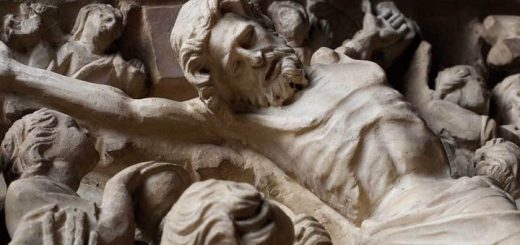It is time to keep vigil together to remember that "God does not show preference for people" (Acts 10,34-35)
"In truth I am realizing that God does not show preference for people, but welcomes those who fear him and practice justice, whatever people they belong to.” (Acts 10,34-35) is a biblical verse that contains an essential revelation of the evangelical message: the universality of God's love and justice. It becomes particularly relevant for anyone who feels marginalized, excluded or judged, offering a vision of radical welcome and unconditional dignity.
A God who welcomes everyone
The context of this verse is emblematic: Peter, in a vision, is called to break down the cultural and religious barriers that separated the Jews from the Gentiles (Acts 10.28). This vision is not just a lesson in ethnic inclusion, but a universal openness: God reaches out to everyone, without exception.
The reference to the fact that God does not "prefer people" also reminds us of Paul's words in the Letter to the Galatians: "There is no longer Jew or Greek; there is no longer slave nor free; there is no longer male or female, for you are all one in Christ Jesus” (Galatians 3:28). This statement recalls a profound reality: before God what counts are not human categories, but the heart and justice of each person.
A call for those who feel on the margins
For those who feel excluded, judged or unworthy, this verse is a promise of hope. God does not look at what the world often judges: appearance, status, or adherence to human standards. Rather, he welcomes those who "fear him and practice justice". This theme is also central in the prophet Isaiah: “I will dwell with him who is humble and contrite in spirit, to revive the spirit of the humble and to revive the heart of the contrite” (Isaiah 57.15). God never abandons those who are hurt or marginalized, but elevates them and welcomes them into His grace.
Practicing justice
The call to "practice justice" invites us to reflect on what it means to live in harmony with the evangelical message. It's not about conforming to rigid moral codes imposed by men, but about embracing a lifestyle that puts love, compassion and acceptance at its centre. Jesus himself, in the Gospel of Matthew, reminds us: “Blessed are those who hunger and thirst for justice, for they will be satisfied” (Matthew 5.6). God's justice is not punitive, but restorative: it is an action that reintegrates, heals and gives dignity.
A message of universal inclusion
The Scriptures are full of images of a God who breaks down walls of exclusion and builds bridges. Let's think about Psalm 145: “The Lord supports all those who fall and raises up all those who are downcast” (Psalm 145.14). This God does not stop in front of our fragilities, the labels the world assigns to us or the wounds we carry inside. Your welcome is total, without reservations.
A community called to reflect God
As a Christian community, we are called to reflect this welcome. We cannot allow human judgments to limit divine grace. TheEcumenical vigils and cults dedicated to this themethey are an opportunity to remind us that the Church is not a place of exclusion, but a home for all. Jesus himself, speaking to his disciples, states: “Come to me, all you who are weary and burdened, and I will give you rest” (Matthew 11.28). This invitation is not addressed to a select few, but to anyone who carries a burden in their heart and seeks comfort.
The spiritual value of finding oneself
Coming together to pray and meditate on this verse becomes an act of testimony: it is declaring that the Christian community is called to be a reflection of the justice and love of God. It is a moment to recognize that everyone, regardless of their history, is welcomed in the same divine light. Jesus teaches us that “God's love is perfect” (Matthew 5.48): a love that includes, heals and embraces every heart, without exceptions.
In this spirit, we walk together, certain that God's message knows no boundaries and that in His house there is room for everyone.






